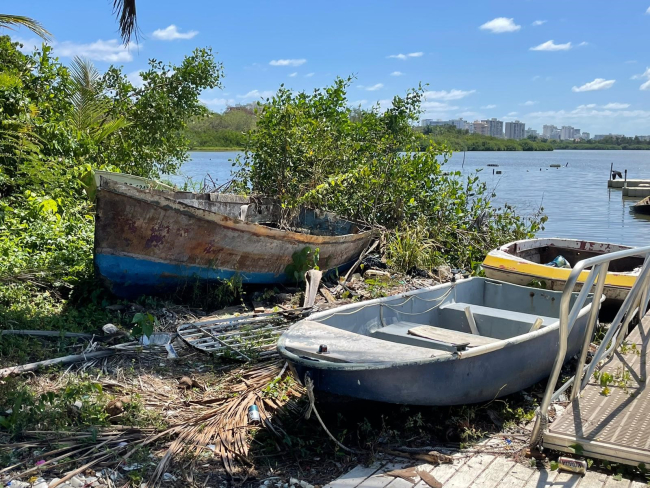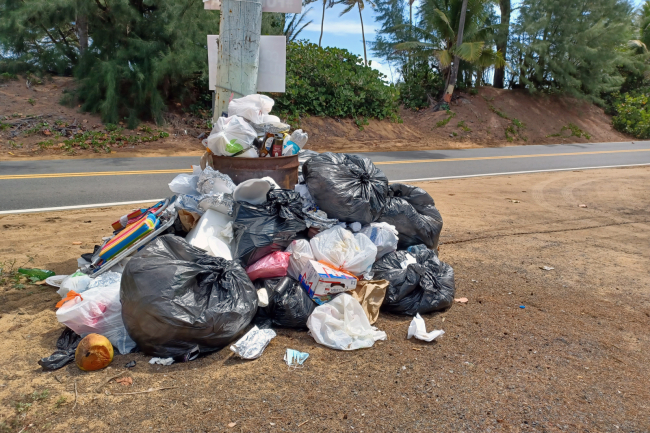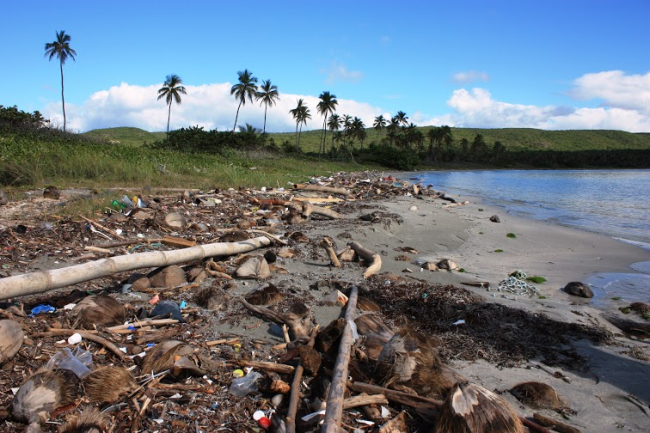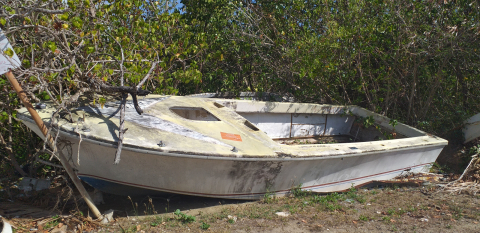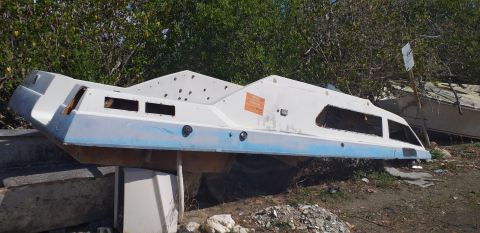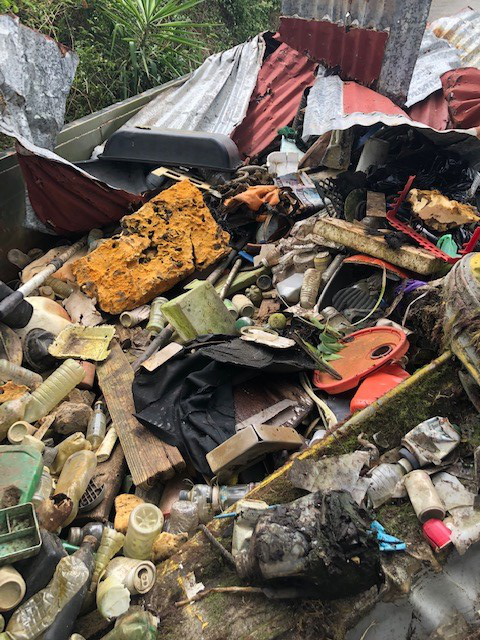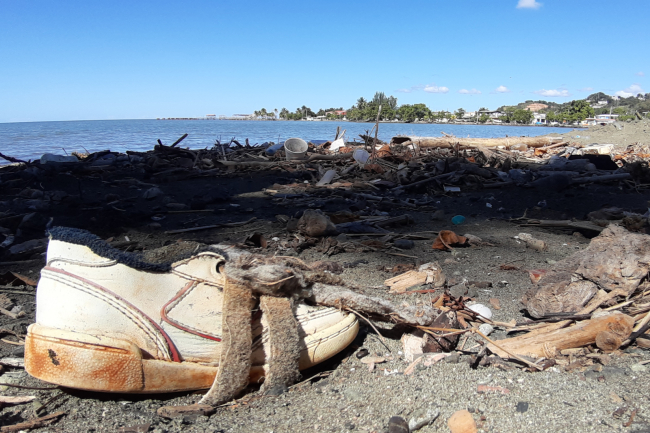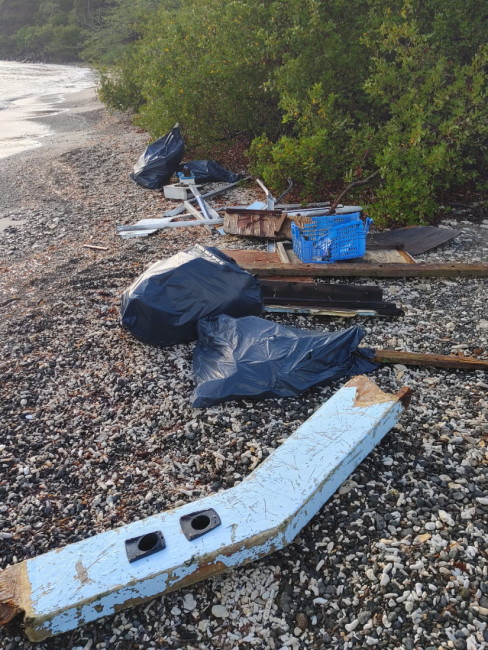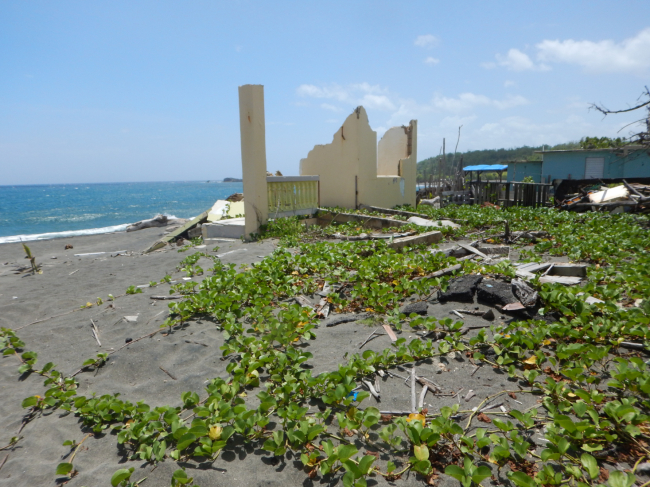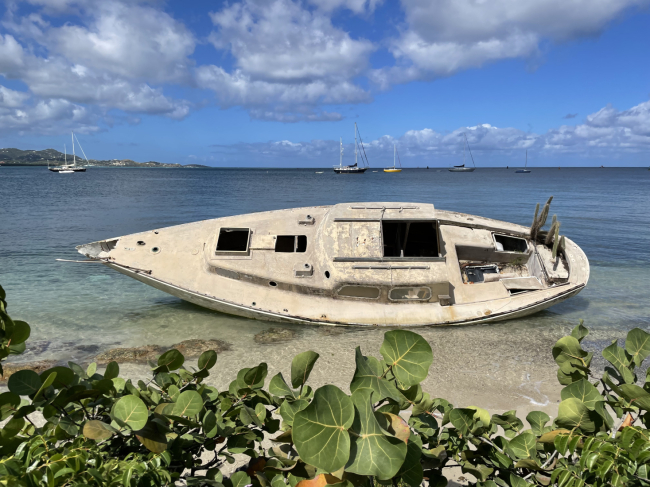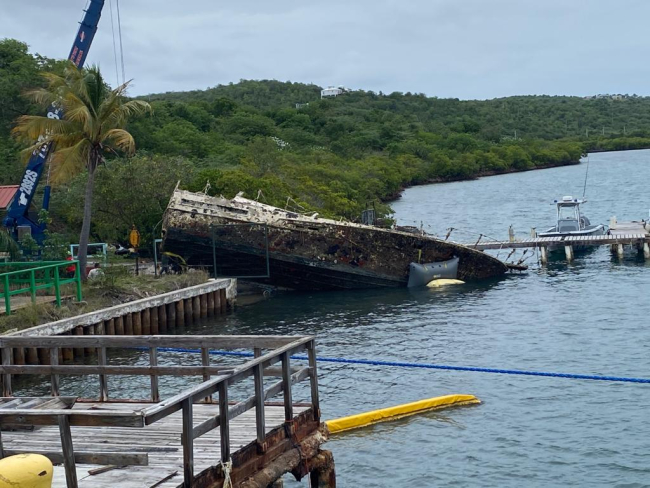Throughout the year, the NOAA Marine Debris Program will spotlight each region for an entire month. Keep an eye on our blog and social media to learn about exciting marine debris projects and initiatives throughout the country.
The picturesque islands in the Caribbean can be considered the perfect dream vacation getaway for many, but this natural paradise isn’t free from the issues of marine debris. Islands in the Caribbean are vulnerable to hurricanes, and communities are often impacted by disaster debris. Other factors, such as a dependence on imported goods and solid waste management challenges, increase the chance of unwanted debris littering their coasts. With the support from the NOAA Marine Debris Program, our partners in the U.S. Virgin Islands and Puerto Rico are passionately working to remove existing debris, develop strategies to prevent future marine debris, and create tools that empower communities to take local action.
In Northeast Puerto Rico, the Scuba Dogs Society is working with the coastal communities of Playita, Las Margaritas, and Herrera fishing villages to remove debris impacting marine environments, including abandoned boats, derelict fishing gear, and hurricane debris. They will also build prevention strategies by leading education and outreach activities and the development of a Marine Debris Community Action and Response Plan.
An important step to addressing marine debris is to invest in research and monitoring efforts to understand the local issues. Researchers from Villanova University, in partnership with Aleli Environmental and Protectores de Cuencas, are studying the sources of marine debris and how it travels from the upstream areas of Guánica, Puerto Rico to nearshore coastal waters. They are also evaluating how debris breaks down over time in different types of habitats and environmental conditions. Another project, led by HJR Reefscaping and the Puerto Rico Department of Natural and Environmental Resources, with support from the Marine Debris Program and the National Marine Sanctuary Foundation, is focused on updating the abandoned vessels database for Puerto Rico and establishing collaborations between coastal municipalities and the U.S. Coast Guard to identify resources to remove the vessels.
Our Caribbean partners are also taking the lead in creating the tools needed to prevent marine debris. Recognizing that education is essential, they are prioritizing the creation of curriculums. The University of the Virgin Islands (UVI) recently published a marine debris curriculum highlighting specific marine debris issues and initiatives for the U.S. Virgin Islands. Through a partnership with the National Sea Grant and the NOAA Marine Debris Program, Puerto Rico Sea Grant is also developing a bilingual 4-12th grade curriculum and will be training teachers to implement marine debris prevention strategies.
Beyond the classroom, there is a big picture effort to empower communities to address regional marine debris issues. The University of the Virgin Islands recently led the creation of the U.S. Virgin Islands Marine Debris Action Plan. In Puerto Rico, a joint effort between the NOAA Marine Debris Program and the Environmental Protection Agency’s Trash Free Waters Program is beginning development of a new Puerto Rico Marine Debris Action Plan.
In addition to education and action plans, Caribbean communities need resources and guidance when disasters strike. To help mitigate the hazards caused by huge amounts of hurricane-generated marine debris, the Marine Debris Program is developing Marine Debris Emergency Response Guides that improve preparedness and coordination during and after recovery operations. A guide is available for USVI and one will be published for Puerto Rico in 2022. Through disaster relief funding, our Caribbean partners from the Puerto Rico Department of Natural and Environmental Resources and from the U.S. Virgin Islands Department of Planning and Natural Resources are leading the removal of debris remaining from Hurricanes Irma and Maria. Collectively, these projects have already removed over 845,000 pounds of vessels, docks, and other marine debris!
The endless passion of our partners of the Caribbean is reflected in their effort to come together and overcome the storm called marine debris. Visit our regional page to learn more about mangrove cleanups in the Virgin Islands and fishing gear removals by fishermen from the coastal communities of Punta Santiago, Humacao and Húcares, Naguabo in Eastern Puerto Rico.

